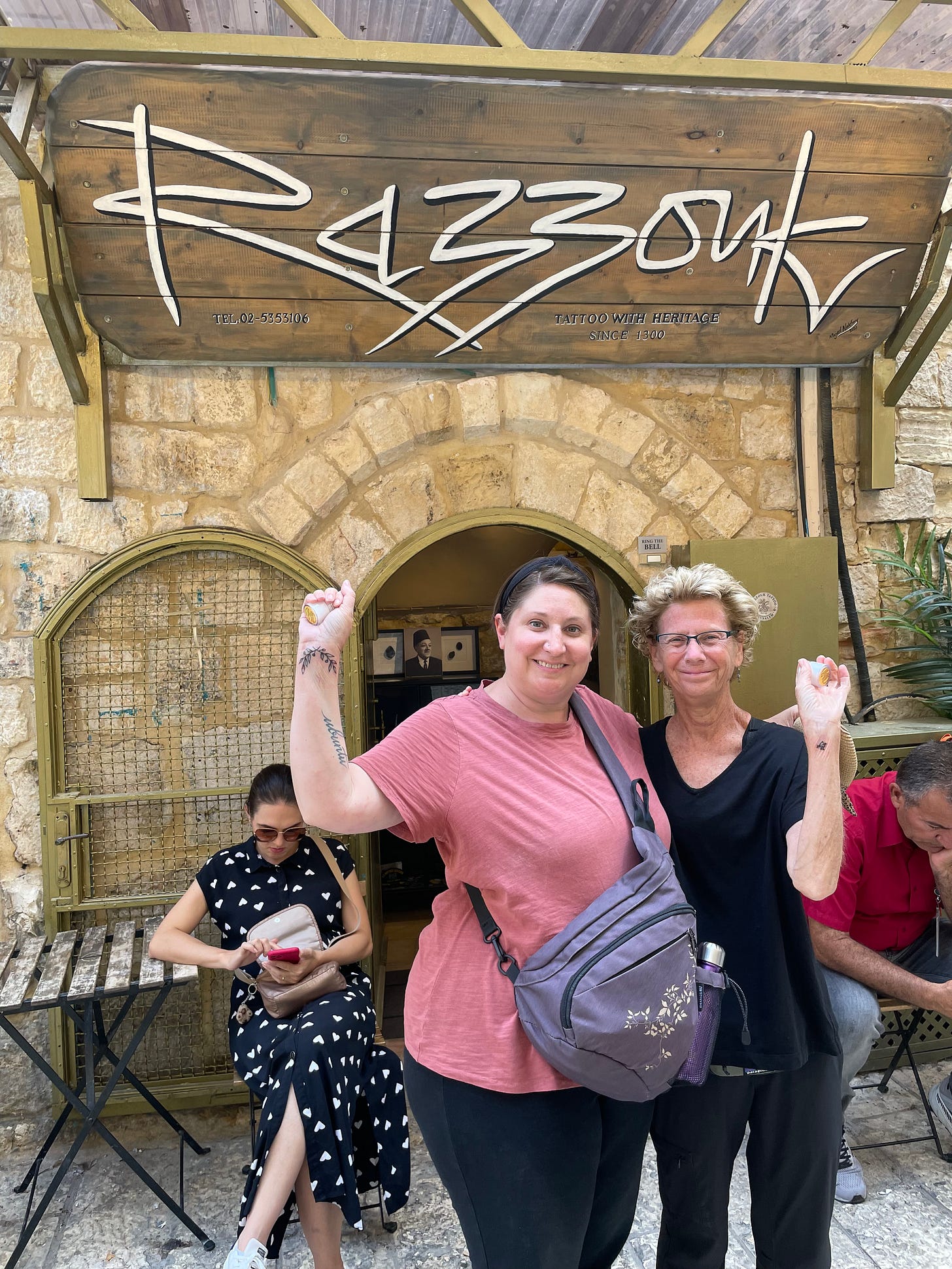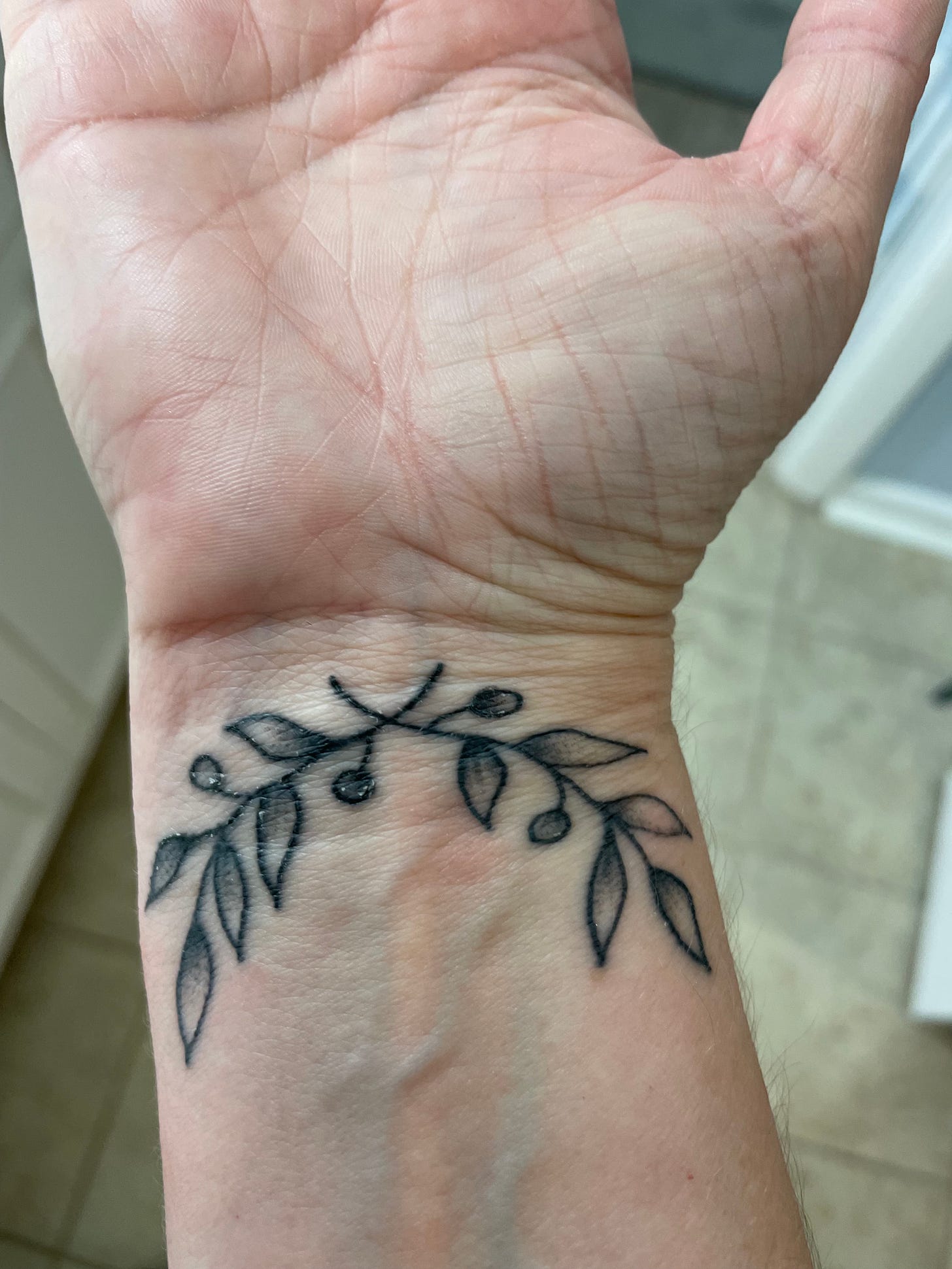This had not been part of the plan. Months earlier, a friend had suggested that when I was in the Holy Land, that I consider getting a tattoo at the same tattoo parlor where he had gotten his tattoo when he went to Israel. It’s apparently where everyone gets their tattoo to commemorate their pilgrimage to the Holy Land. And it was this last part that made me not want to go there. It’s the contrarian in me. If everyone else is doing it, I don’t want to do it. I suppose this is also the reason I refuse to buy a Taylor Swift album, even though I suspect I would probably like it if I actually broke down and bought one. But I digress.
Early on in our week in East Jerusalem, on a quick walk around the neighborhood surrounding our hotel, I stumbled across it— the Razzouk Tattoo Parlor. It was right there in East Jerusalem, less than two blocks from our hotel. Was this a sign??
One thing I had not realized, in my quick dismissal of the idea of going to Razzouk months earlier, was that Razzouk was a Palestinian business. It was owned by a Coptic Egyptian family who immigrated to Palestine five centuries earlier. Getting a tattoo at Razzouk would not only connect me to a 700 year old tradition, it would also be supporting a Palestinian business! (Turns out, I need very little in the way of an excuse to get a new tattoo.)
The family got into the tattoo business for a very practical reason. In the 1300’s, tattoos were used to mark Christian Copts in Egypt with a small crosses on the inside of the wrist to grant them access to churches. Those without them would have difficulty entering; therefore, and from a very young age (sometimes even a few months old) Christians would tattoo their children with the cross identifying them as Copts.
And so it came to be that when we returned to Jerusalem after our morning in Bi’lin, as my husband went off to do more sightseeing (not happy with my decision to stay behind and get a tattoo in a foreign country), I headed around the corner and up the cobblestone hill to the famous tattoo parlor with another brave member of our group who decided she would also get a permanent memento in ink.
While we waited in the very crowded lobby (it was swarming with fellow pilgrims), we sipped on Taybeh beers and leafed through albums of tattoo options. The moment I saw it, I knew it was the one. A pair of crossed olive branches.
The olive tree is an important symbol for Palestinians. As I’ve mentioned in this blog before, olive trees represent the value of sumud— the Arabic word for steadfastness, because of their strong roots. I had met so many samidin (those who are steadfast) over the last two weeks, and I felt this was the perfect way to remember my trip and honor the people that I had met. I also felt it would be a great way to share the story of my trip with others. Whenever someone asked me about the tattoo and what it meant, I would tell them about sumud and about the many samidin that I had met in Palestine. I would tell them how they had changed my life.
As for me, this tattoo would forever remind me of my new imperative— go, and tell. Share the stories of the people I had met. Tell every person I know what is happening to these people and their children. Tell every representative in government what it is they are enabling by approving ongoing military aid to the apartheid state of Israel. Demand change. Palestine and its people had made their way into my heart, and now, they were permanently inked into my skin. The tattoo was therefore, an outward, visible representation of an inner transformation that had taken place. Nothing would ever be the same, and I would never forget.





